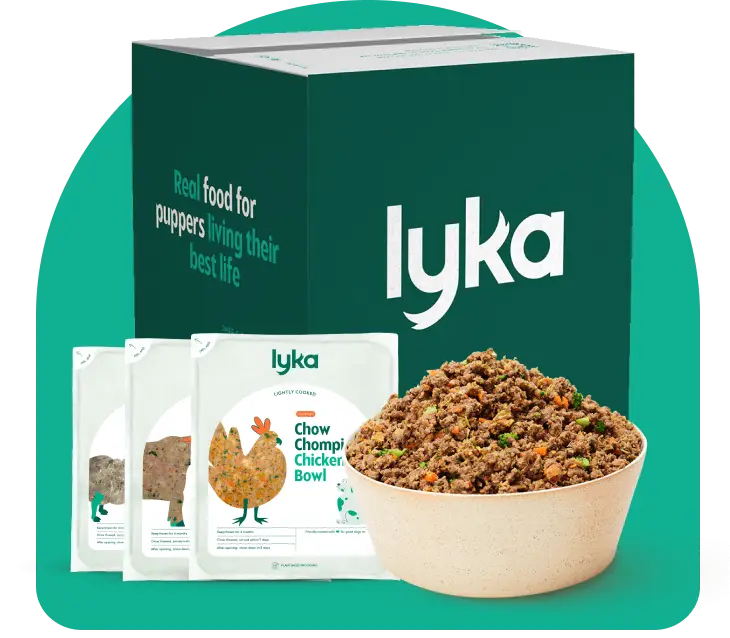Why unprocessed dog food is best

By Jessica O'Connell

Intuitively, it makes sense that unprocessed, healthy fresh food is better for your dog. But, since the development of kibble, there haven’t been many studies into how the highly processed food can affect the health of dogs. DogRisk is changing this through their groundbreaking work into how nutrition, the environment and genetics, can affect disease in dogs. Findings indicate that dogs fed kibble have elevated levels of metabolic stress and systemic inflammation.
Who are DogRisk?
The DogRisk team, based at the University of Helsinki in Finland, are dedicated to interdisciplinary research on dog health. They have been collecting data since 2009, looking at diet, disease and habitats.
Their research studies specific dog diets for long periods of time and observes changes including metabolism, blood nutritional profile, gene function and other molecular changes.
What have the DogRisk studies shown so far?
In an interview with Dr. Karen Becker, a leader in natural feeding, Robin Moore from DogRisk explains how they look at changes in dogs on a molecular level and study how different diets affects dogs.
DogRisk research has specifically investigated the levels of metabolites associated with different diets. Metabolites are regarded as the immediate bi-product of the metabolic process. Primary metabolites are those that are directly involved in the growth, development, and reproduction of an organism whereas secondary metabolites are those that are not. Thus, primary metabolites are critical to the survival and the fecundity of an organism. Secondary metabolites may not be as crucial but the lack or insufficiency could lead to the impairment of the organism.
Before assigning dogs to either a raw or a kibble diet, the team looked at the levels of metabolites and no significant patterns were found.
After assigning the diets, dogs eating dry food experienced changes in their metabolites, which suggested higher levels of biological stress on their body.
Dogs fed dry food also had higher levels of homocysteine, which is the marker for disease in dogs. These diseases include skin, kidney, and heart disease as well as cancer.

Can processing ever be good?
Simply, no.
Processing kills bacteria and pathogens in the food, which decreases the risk of food-borne illnesses. In doing so though, it also kills many of the food’s essential nutrients, vitamins and minerals, which can lead to nutritional deficiencies in pets.
Kibble undergoes a process called extrusion, where the food requires high levels of carbohydrate and is cooked at temperatures exceeding 200 degrees Celsius. Natural vitamins and minerals are lost during the heating process, so typically artificial ones are added in their place. Kibble is often then sprayed with fat and colouring to enhance the flavour and make it more appetising for dogs. This fat has been linked to many contamination recalls. Evidence suggests that moving away from a dry food diet can reduce the risk of cancer and other diseases.
Dry food
Pro: Dry food can be stored outside of the fridge, making it convenient to buy and use.
Con: Being shelf-stable means that the food has undergone a process `that removes essential nutrients, which then need to be re-added in a synthetic form.
Pro: Dry food is cheap and affordable.
Con: Its mass-produced nature and inclusion of low-quality ingredients allows dry food to be sold at an incredibly low cost. Can you really put a price on the health of your pupper?
Raw food
Pro: Raw food is nutrient-dense as it doesn’t undergo any chemical changes or heat processes that kill all the essential nutrients.
Con: Some dogs struggle to digest raw food, including puppies and seniors, causing upset tummies and digestive problems.
Pro: Natural and considered species-appropriate for many dogs.
Con: Raw is usually pet-grade and comes from knackeries, so pet parents don’t know where the meat has been sourced from, nor what that animal has eaten. This can cause dogs to become ill or worse, can be fatal.
Pro: No blood sugar spikes that often experienced when feeding kibble due to its high GI, carbohydrate and starch content.
Con: Risk of not being complete and balanced, leaving your pupper deficient in essential vitamins, minerals and other necessary dietary requirements.
Why we believe in fresh dog food
As humans, we all know that a less processed diet is better for us. The more natural our food is the better – the same goes for our dogs.
Lyka: fresh, balanced & nutritious
At Lyka, we aim to change the norm of feeding kibble by providing fresh food to Australian dogs. Lyka meals are minimally processed to preserve nutrients, but lightly cooked to make it more gentle on tummies and stop pathogenic contamination. Each ingredient has been hand-picked for its nutritional value, with our in-house Integrative Vet, Dr. Matthew Muir, overseeing each formulation alongside a veterinary nutritionist. Order a Starter Box today and experience the fresh food difference for yourself!







